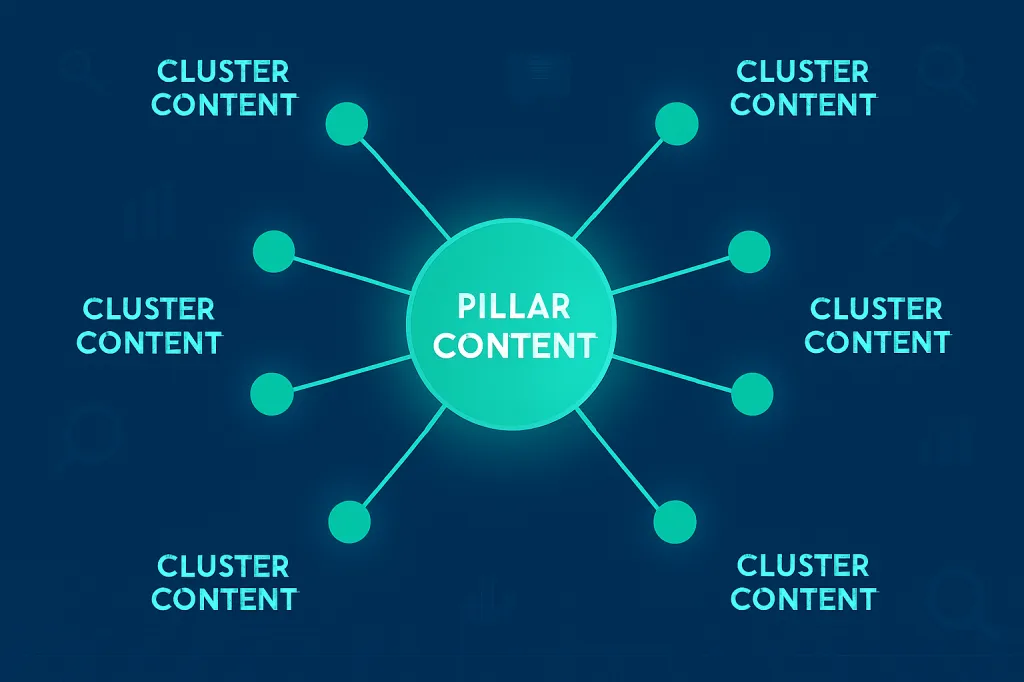In the world of SEO, ranking for a few scattered keywords is no longer enough. To truly dominate the search results and become a trusted resource, you need to build Topical Authority. It's the difference between being a small bookstore with one book on every topic and being a specialized library dedicated entirely to a single subject. Guess which one Google prefers?
This guide will explain what topical authority is, why it’s a game-changer for your website, and provide a step-by-step strategy to start building it today.
What Exactly Is Topical Authority?
Topical authority is a measure of a website's perceived expertise and depth of knowledge within a specific niche. When you consistently publish high-quality, comprehensive content covering a particular subject area from multiple angles, search engines like Google begin to recognize your site as a credible and authoritative source for that topic.
Instead of just seeing a single page as relevant, Google sees your entire domain as an expert on the subject, making it easier for all your related content to rank.
Why Is Topical Authority a Game-Changer for SEO?
- Higher Rankings Across the Board: As your authority grows, Google is more likely to rank your content—even new articles—higher in search results for relevant queries.
- Easier to Rank for Competitive Keywords: Once you're an authority, you can start competing for broader, more competitive keywords that were previously out of reach.
- Increased Organic Traffic: Authority builds a strong foundation that attracts sustainable, long-term organic traffic, reducing your reliance on short-term tactics.
- Builds User Trust: When visitors see that you have a wealth of information on a topic, they are more likely to trust your brand, spend more time on your site, and convert.
How to Build Topical Authority: A 5-Step Strategy
Building authority requires a strategic approach. The most effective method is the Pillar-Cluster Model.
Step 1: Define Your Core Niche
First, be specific. Instead of a broad topic like "digital marketing," narrow your focus to something like "content marketing for SaaS startups." The more specific your niche, the faster you can build authority.
Step 2: Identify Your Pillar Content
A "Pillar Page" is a long, comprehensive piece of content that provides a broad overview of your core topic. It acts as the central hub. For our example, a pillar page might be titled "The Ultimate Guide to Content Marketing for SaaS."
Step 3: Create Your Topic Clusters
"Cluster Content" consists of shorter, more specific blog posts that explore subtopics related to your pillar page in greater detail. Each cluster page should link back to the pillar page.
For our example, cluster topics could be:
- "How to Create a SaaS Blog Editorial Calendar"
- "7 Ways to Repurpose Your SaaS Case Studies"
- "SEO for SaaS: A Beginner's Guide"
- "Measuring Content Marketing ROI for Your SaaS"
Step 4: Master Your Internal Linking
This is the glue that holds your strategy together. Your internal linking structure should be deliberate:
- Every cluster post must link up to the main pillar page.
- The pillar page should link out to each of the cluster posts.
- Where relevant, link between related cluster posts.
This creates a tightly-knit web of content that signals to Google that you have deep expertise on the subject.
Step 5: Be Consistent and Patient
Topical authority is not built overnight. It requires a commitment to consistently publishing high-quality, in-depth content within your chosen niche. Keep expanding your clusters and occasionally updating your pillar page to keep it fresh and relevant.
Conclusion
Shifting your focus from ranking individual keywords to building topical authority is a powerful, long-term SEO strategy. By proving to search engines that you are a genuine expert in your field, you create a sustainable advantage that is difficult for competitors to replicate. Start by defining your niche, planning your pillar and cluster content, and build your authority one post at a time.





